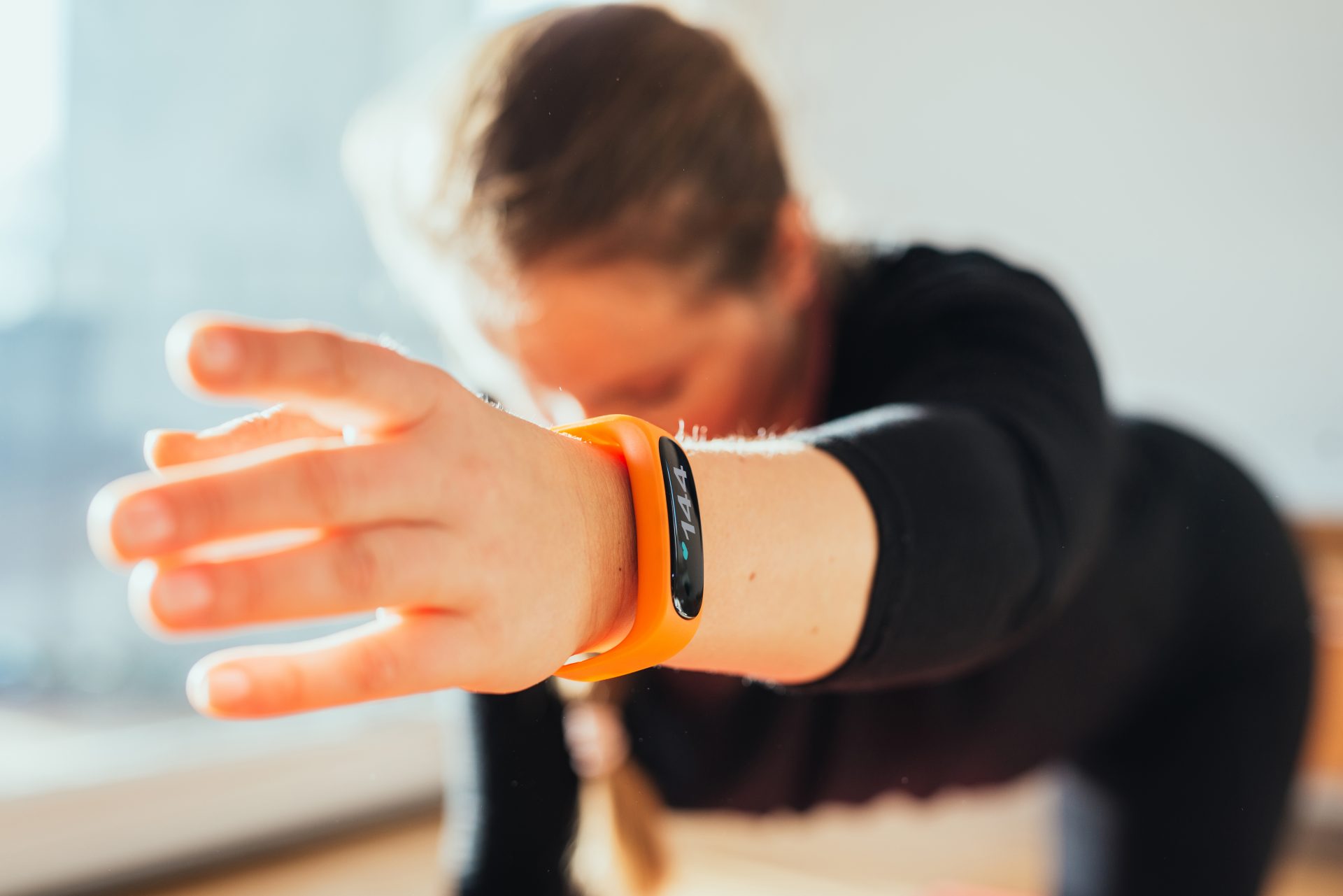Fitness trackers measure heart rate variability as a sign of recovery – but your period cycle could be throwing the reading off.
We’ve become accustomed to counting our steps, monitoring our heart rate and tracking our sleep – but the technology on smartwatches doesn’t stop there. Now, we can also monitor lesser-known markers, like blood oxygen levels and heart rate variability (HRV).
The latter may be niche, but it can actually be a useful indicator of our health – for example, it’s been associated with helping people track their infection and recovery from Covid-19.
What is HRV?
Put simply, HRV is the fluctuation in time between heartbeats. “A high HRV is a sign of being fit, rested and well – it means your heart rate is easily fluctuating and your body can adapt to situations.
You may also like
Covid-19 symptoms are being picked up by fitness trackers – here’s how to track asymptomatic coronavirus
The days your phone alerts you to the fact you’re less recovered is probably because your HRV is lower. “When we have a high variation between heartbeats, it is a sign that the heart is resilient to stress; meaning that it can respond quickly to postural changes all in the view of biological survival,” Dr Stacy Sims, a researcher and expert in female physiology and training, tells Stylist.
This is because, despite the name, your HRV isn’t only controlled by the heart but also by the nervous system. The variation is a sign of whether you are in a state of ‘fight or flight’ or ‘rest and digest’ – essentially, whether you’re stressed or very relaxed. When we are feeling on edge, our HRV drops and the body can’t recover or perform at its best.
“If we are constantly stressed we find a significantly decreased HRV because there is an imbalance between the sympathetic and parasympathetic nervous system responses,” explains Dr Sims. “When we have adequate rest (not just sleep, but mental and physical rest from stress), we have a greater ability to tap into the parasympathetic nervous system (the “rest and digest” ), which indicates more resilience to stress and a greater HRV.”
But for those with natural periods (when the menstrual cycle is led by naturally occurring hormones rather than contraception or other medication), the reading isn’t that simple. According to women’s health researcher Dr Stacy Sims, your menstrual cycle can impact your HRV too. In a recent blog, Dr Sims wrote that HRV readings “sound straightforward – until you factor in sex hormones”.

How does the menstrual cycle impact HRV
There are two key hormones that regulate the menstrual cycle – oestrogen and progesterone. These two chemicals also have a huge influence over our nervous systems – and thus our HRV.
“Oestrogens affect vagal tone, which means itchanges HRV by making your parasympathetic system dominant,” says Dr Sims. That means we are more relaxed during the beginning half of our menstrual cycle. While progesterone can have a calming effect on the brain, “it mainly stimulates the sympathetic arm of the autonomic nervous system, putting us more into ‘fight or flight’ mode and reducing HRV,” adds Dr Sims.
What does this mean for you? Firstly, the fact that our HRV is lower during the luteal phase (just before our period) might explain why we tend to feel tired or more stressed before our bleed.
“Increasing a focus on good sleep hygiene and adding in some parasympathetic activation (think mindfulness activities such as deep breathing) before bed can help reduce fatigue and improve sleep quality,” says Dr Sims.
But she also points out that these changes are further evidence we need to listen to our bodies, not our watches: “Fitness trackers, by and large, are designed by men with male algorithms, using male data and male physiology. Men do not have this same change in HRV throughout the month, so fitness trackers perceive normal progesterone-induced change as poor recovery.
“In fact, it doesn’t necessarily mean you are poorly recovering in the luteal phase, but rather that your body is slightly less resilient to stress,” Dr Sims explains.
You may also like
“I broke up with my fitness tracker – and this is what happened”
Given that less than a third of research in sports and fitness is done in women, recommendations on exercise and hormones should always be taken with a pinch of salt. Your watch may be high-tech, but not even a state-of-the-art sensory tracker knows how you feel better than you do.
Images: Getty
Source: Read Full Article